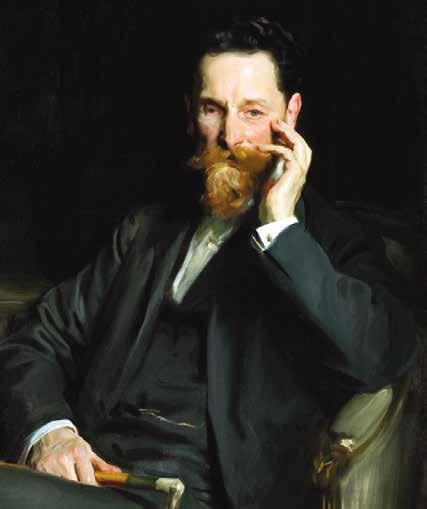
3 minute read
History of the Pulitzer Prizes
By Seymour Topping with Sig Gissler
In the latter years of the 19th century, Joseph Pulitzer stood out as the very embodiment of American journalism. Hungarian-born, an intense, indomitable figure, Pulitzer was the most skillful of newspaper publishers, a passionate crusader against dishonest government, a fierce, hawk-like competitor who did not shrink from sensationalism in circulation struggles, and a visionary who richly endowed his profession.
Advertisement
His innovative New York World and St. Louis PostDispatch reshaped newspaper journalism. Pulitzer was the first to call for the training of journalists at the university level in a school of journalism. And certainly, the lasting influence of the Pulitzer Prizes on journalism, literature, music, and drama is to be attributed to his visionary acumen.
PULITZER‘S FLEXIBLE WILL
In writing his 1904 will, which made provision for the establishment of the Pulitzer Prizes as an incentive to excellence, Pulitzer specified solely four awards in journalism, four in letters and drama, one for education, and five traveling scholarships. Initially, three of the scholarships were awarded on the recommendation of the faculty of journalism at Columbia to graduating students; two of the scholarships—in art and music, respectively—were administered externally by a jury comprised of faculty from the Columbia Department of Music and the Institute of Musical Art (music) and the National Academy of Design (art). Like the other awards, the latter two scholarships were open to all music and art students in America. (Currently, five scholarships of $7,500 are awarded to graduating students from the School of Journalism.)
In journalism, prizes were to recognize “the most disinterested and meritorious public service rendered by any American newspaper during the preceding year” (a gold medal worth $500 with no monetary component); “the best editorial article written during the year, the test of excellence being clearness of style, moral purpose, sound reasoning, and power to influence public opinion in the right direction” ($500); and “the best example of a reporter’s work during the year, the test being strict accuracy, terseness, the accomplishment of some public good commanding public attention and respect” ($1,000). (A $1,000 prize for the best history of services rendered to the public by the American press in the preceding year was only awarded once; similarly, a $1,000 prize for a paper on the development of the School of Journalism was never awarded due to a dearth of competitors.) In letters, prizes were to go to an American novel ($1,000), an original American play performed in New York ($1,000), a book on the history of the United States ($2,000), and an American biography ($1,000).
But, sensitive to the dynamic progression of his society, Pulitzer made provision for broad changes in the system of awards. He established an overseer advisory board and willed it “power in its discretion to suspend or to change any subject or subjects, substituting, however, others in their places, if in the judgment of the board such suspension, changes, or substitutions shall be conducive to the public good or rendered advisable by public necessities, or by reason of change of time.” He also empowered the board to withhold any award where entries fell below its standards of excellence. The assignment of power to the board was such that it could also overrule the recommendations for awards made by the juries subsequently set up in each of the categories.
Thus, the Plan of Award, which has governed the prizes since their inception in 1917, has been revised frequently. The board, later renamed the Pulitzer Prize Board, has increased the number of awards to 21 and introduced poetry, music, and photography as subjects, while adhering to the spirit of the founder’s will and its intent.








